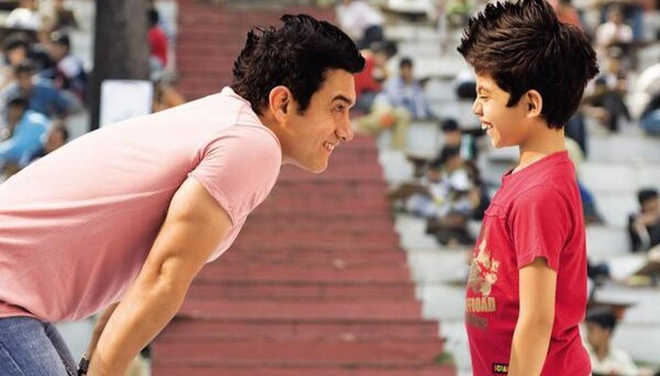
A still from Taare Zameen Par
Chanakya Grover
If you are in India, you cannot escape the examination fever, which is in full swing right now. The mass hysteria around annual and competitive exams is something that will surely find its way to your living room.
Having said that it will be unfair to assume that our education system has stayed the same all these years. It has definitely evolved with time, keeping in mind different cultures and the changing needs of our society. But across generations and nations, one thing that sticks out like a sore thumb is the ‘rigidity’ that often seeps into any education system that works well to begin with. This rigidity, in turn, makes the elitist of our institutes archaic and ineffective in imparting true education, thereby, converting these into factories that churn out assembly line products by the thousands.
Though much has been portrayed and discussed about such institutes and systems through art and other means, three films, namely, Dead Poets Society (1989), Mona Lisa Smile (2003) and Taare Zameen Par (2007), stand out in the ever-so-relevant debate on pedagogy and quality of education, warranting a definite watch.
Set in different eras (1959, 1953, 2007) and countries (the US and India), with an all-too-real-and-relatable social backdrop, these movies take the viewer inside three premier institutes of their time. Common to these movies are a disciplined-to-a-fault boarding school, set-in-their-ways teachers, over-demanding and conservative parents, and young and vulnerable students. All of them are shaken in their boots with the arrival of a new teacher who refuses to toe the line set by his/her predecessors and colleagues, and who urges his/her students to think for themselves, find their voice and embrace individuality despite parental and societal pressure of conforming.
While Dead Poets Society featuresRobin Williams (John Keating) as an English Professor in an all-boys school, Mona Lisa Smile and Taare Zameen Par have Julia Roberts (Katherine Ann Watson) and Aamir Khan (Ram Shankar Nikumbh) playing the role of an Arts teacher in an all-girls college and an all-boys school, respectively. While Keating uses poetry as his tool to teach important life lessons and awaken his students’ spirits, Watson and Nikumbh use visual arts.
So, on the one hand, you’ll find Keating telling his students to rip out the introduction chapter of a book on poetry that teaches how to rate a poem on a graph; teaching them instead, “When you read, don’t just consider what the author thinks; consider what you think.” On the other hand, you’ll find Watson showing her students an image that is not part of their syllabus and asking them, “Is it art? What is Art? What makes it good or bad? And who decides? And when Betty, her student, replies, “Art isn’t art unless someone says it is,” Watson counters it with, “Who are they?” telling everyone to look beyond the paint and open their minds to new ideas. Nikumbh, however, takes an entirely different approach, given how his class comprises eight-year-olds. To break the ice, he sings and dances his way to the class urging his students to question everything and think freely and differently. He follows it up by asking his students to draw/paint to their heart’s desire, without worrying about rules and accuracy.
You’ll also find references to some great personalities which these teachers use to inspire their students to live an honest life and overcome obstacles. In one of the scenes, Keating quotes Welsh poet Dylan Thomas, “Do not go gentle into that good night… rage, rage against the dying of the light.” In another scene, Watson talks about Vincent van Gogh and paint-by-numbers art box that is gaining popularity these days; “He painted what he felt like, not what he saw. People didn’t understand…. It took years for them to recognise his actual technique. The way his brush strokes seemed to make the night sky move…. Look at what we have done to the man who refused to conform his ideals to popular taste. Who refused to compromise his integrity? We have put him in a tiny box and asked you to copy him.” Nikumbh, on learning that his student Ishaan is dyslexic, takes upon himself to normalise it for Ishaan and others and talks about some famous personalities like Thomas Edison and Leonardo da Vinci, who suffered from the same condition but were brilliant in their fields. Moreover, he goes out of his way to help Ishaan catch up with his peers and explore his innate talent.
Even though Taare Zameen Par focuses more on the troubles of one child vis-a-vis the other two movies that cover a broader spectrum, all three movies show that a progressive shift in people’s mindset is possible even when there’s a lot of resistance to change. They force us to introspect and question our education systems and our approach of painting every child with the same brush, overloading them with our ambitions, and then expecting them to excel. They tell us to look beyond the tried and tested and wander a little because as Betty says in Mona Lisa Smile, “Not all who wander are aimless. Especially, not those who seek truth beyond tradition; beyond definition; beyond the image.”



























